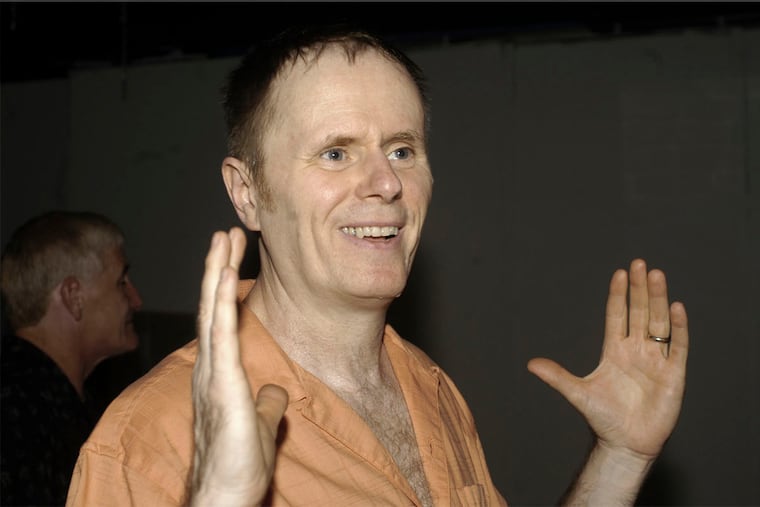George Manney, 64: Rock pioneer and archivist
George Manney, 64, of Tacony, a highly regarded Philadelphia rock pioneer, filmmaker, archivist, and producer, died Wednesday night, Dec. 9, at Fox Chase Cancer Center, just a week after being diagnosed with pancreatic cancer.

George Manney, 64, of Tacony, a highly regarded Philadelphia rock pioneer, filmmaker, archivist, and producer, died Wednesday night, Dec. 9, at Fox Chase Cancer Center, just a week after being diagnosed with pancreatic cancer.
Mr. Manney paved the way for the far-famed Last Minute Jam, a weekly music gig held at Khyber Pass in Old City and then, starting in 1987, at J.C. Dobbs. For years he amassed a far-ranging collection of rock souvenirs, which over time became a sort of alternative at-home museum that flooded the "Bunker," as the basement of his home was known.
"Over the years, he has become the sort of de facto archivist of Philadelphia music," said longtime radio personality Michael Tearson. "People knew to give him stuff. His house, top to bottom, is crammed with memorabilia."
Mr. Manney was a lifelong Philadelphian. When he was a teenager in the late 1960s, his band Stone Dawn rocked venues like the original Electric Factory, the 2nd Fret, and the Trauma. Later, he drummed for bands and musicians including Alan Mann, Beru Revue, and Kenn Kweder, and, in the 2000s, Robert Hazard and Charlie Gracie.
He occasionally performed with his wife, Susan Teears. In the past, the two played with local musician Rocco Notte as the band Clutch Cargo.
In 1986, Mr. Manney created Geo Sound, a production company and center for his musical activities. Throughout his life, he worked with and inspired countless music aficionados.
"It was a delight to work with George," said Tearson, who knew Mr. Manney for 40 years. "He was always an upbeat person. There are very few people that nobody dislikes, and George is one of those people."
"Music was his world," said Mark Schulz, executive director of the Philadelphia Chapter of the Recording Academy. "I knew him as someone who's a walking encyclopedia of all things Philly music."
In 1992, Mr. Manney was struck by a car while crossing Roosevelt Boulevard on his way to work at Tower Records. He spent months in the hospital and years in rehabilitation. The accident, along with the 1998 death of his mother, Madeline, firmed his resolve to establish a museum of Philadelphia's music scene.
Mr. Manney took to the streets with a video camera, aiming to document as many Philly rockers as possible. In 2007, he directed and produced his first independent documentary, Pipes of Peace, about Philadelphia-based Rufus Harley, the first jazz musician to adopt a bagpipe as his main instrument. The film, along with another titled Meet Me on South Street: The Story of J.C. Dobbs, is included in Cleveland's Rock and Roll Hall of Fame.
In later years, Mr. Manney devoted his time and resources to what Tearson calls "his magnum opus," Philly Pop Music, an unfinished documentary series chronicling the city's multifaceted musical heritage.
Mr. Manney asked Tearson to narrate the series. Now Tearson is taking the project in his hands, as a "two-part mission" to preserve Mr. Manney's archival collection (in or as an official museum, he hopes) and finish Philly Pop Music.
"I have promised George that it will be done," Tearson said.
"The city of Philadelphia has a treasure in George Manney that it never fully appreciated," Tearson said. "He, on his own, was the gatekeeper for all of this Philadelphia music history that, without him, would be lost now."
Memorial arrangements were incomplete. Tearson said several benefit concerts were being planned for January.